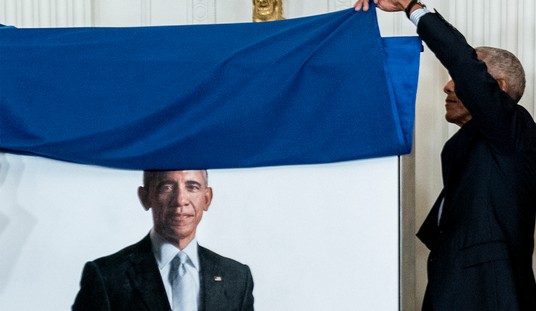A federal court in Washington D.C. has refused to preclear Texas’ photo voter identification law under Section 5 of the Voting Rights Act. The opinion is here.
While many may be surprised by this decision, PJ Media has been forecasting this outcome for some time. The seeds of today’s decision were planted in 2006 when Congress reauthorized the Voting Rights Act. Not only did Congress extend the law, but it changed the substantive requirements to a virtually insurmountable standard for any election integrity measure such as voter ID. In other words, some blame for today’s decision lies more with the Voting Rights Act itself. In 2006, the statute was amended to impose unconstitutional and unrealistic burdens on the states. The revised standard required covered states to prove the absence of “any” discriminatory effect or purpose. Any, of course, means greater than zero.
Now Texas has paid the price, twice in one week. (The same court rejected legislative districts under Section 5 earlier this week.)
Today, the three-judge panel ruled that Texas failed to prove the absence of any discriminatory effect with Voter ID. Judge David Tatel (Clinton appointee), writing for the court, and joined by Judge Rosemary Collyer (Bush 43) and Judge Robert Wilkins (Obama), determined that Texas could not prove the absence of a discriminatory effect.
It is notable that the court declined to rule on DOJ’s efforts to paint Texas as purposefully racist in passing voter ID. Tens of thousands of your tax dollars were spent in that quest, as they are now being spent to prove that South Carolina remains an enclave of Klan-like racism in the voter-ID trial taking place this week.
The court adopted reasoning rejected by other federal courts, such as the 9th Circuit Court of Appeals: “Importantly, it costs money to obtain any of these documents. This means that EIC applicants — i.e., would-be voters — who possess none of these underlying forms of identification will have to bear out-of-pocket costs.” This is the ancillary-cost argument. Since getting ID might require you to do other things, just like voting might require you to get out of bed and to the polls, then voter ID is a burden.
The court also goes into great detail about Texas’ decision to submit the law first to the DOJ for administrative preclearance, a step I have urged should have been avoided. The court focuses on the delays in providing the DOJ data, and the confessed unreliability of that data. The court was supposed to review the case de novo, meaning fresh, but obviously decided to consider the administrative DOJ objection. This is a warning to future states: avoid DOJ getting a free shot at you.
The court exposes another strange turn in the case. Though Texas challenged the constitutionality of Section 5:
With the consent of the parties, we deferred consideration of Texas’s constitutional challenge, explaining that this claim “shall not be addressed unless the Court denies judicial preclearance of [SB 14].”
States in the future must take their time on these cases, fully prepare, and wrap the constitutional claims tightly up with the substantive ones.
Some people still erroneously think that the Supreme Court has green-lighted voter ID per se. This is a dangerous and incorrect assumption. In the Crawford case, the court merely said voter ID was not per se unconstitutional. I have long said that Crawford provides little use for states in a Section 5 context, and today we saw exactly how that works. Today the court agreed: “Contrary to Texas’s argument, Crawford does not control this case.”
On the other hand, Crawford does have some role to play, namely in insulating states from charges they passed voter ID without any proof on in-person voter fraud. This is a favorite canard of the left — “no in-person voter fraud, not widespread, not pervasive!” Today the court rejected that: “The inquiry into whether SB 14 was enacted with discriminatory purpose thus cannot hinge on whether Texas can cite documented instances of in-person voter fraud.”
More strange and discouraging twists follow, especially when an accelerated schedule has been requested and granted. From the court:
Although Texas was able to maintain the July 9 trial date, its dilatory approach to discovery prevented it from obtaining one potentially crucial piece of evidence. Nearly a month after discovery commenced, Texas served the Attorney General with a discovery request seeking data regarding the three types of federal ID permitted by SB 14: U.S. passports, military ID cards, and citizenship certificates. Memo. in Support of Mot. to Compel, ECF No. 130-1 at 1-2. Texas sought access to this federal data to determine the number of Texas voters who lack any form of SB 14-qualifying ID. In response, the Attorney General informed Texas that because federal identification databases are outside his “possession, custody or control,” he was unable to produce them. See Order, ECF No. 179 at 2. He advised Texas to serve subpoenas on the three U.S. agencies who physically control the databases—the Departments of State, Homeland Security, and Defense. See id. at 2-3. Inexplicably, however, Texas never served these subpoenas. Indeed, for thirty days Texas failed to take any action at all vis-à-vis the federal databases. Texas finally filed a motion to compel the Attorney General’s production of the federal databases on May 21—the last possible day to file such a motion.
It gets worse. Again, the court:
Nevertheless, mindful that the federal databases could prove crucial to Texas’s case, we asked the state to decide: would it rather (1) commence trial on July 9, 2012 without federal data, or (2) delay trial, potentially obtain access to the databases, but risk an inability to implement SB 14 for the November 2012 elections? Texas responded clearly and unequivocally: it preferred to go ahead with the July 9 trial date, even without access to the federal databases. Texas’s counsel even downplayed the importance of federal data, stating: “I don’t want to give the impression that if we can’t get [information on federal IDs], we don’t think we can prove our case.” Id.
The court made a very deliberate attempt to protect the 2006 reauthorization from attack. While determining that Texas failed to prove a negative, that there was zero discriminatory effect, the court went further:
Significantly, however, this case does not hinge merely on Texas’s failure to “prove a negative.” See Bossier Parish I, 520 U.S. at 480 (internal quotation marks omitted). To the contrary, record evidence suggests that SB 14, if implemented, would in fact have a retrogressive effect on Hispanic and African American voters.”
This means that even if the 2006 Voting Rights Act reauthorization did not occur, Texas would still fail under the old standards. Texas has promised an appeal to the Supreme Court. The opinion today doesn’t offer any openings for appeal, except a frontal attack on the triggers passed in 1975 that made Texas subject to federal oversight because of language minority populations — namely, Spanish speakers.
See also my PJ Media piece on who should replace Holder, including perhaps Senator John Cornyn (R-TX).










Join the conversation as a VIP Member